Navigating the Roadblocks: Moving Forward in Pathways to DiversityFriday, October 6, 2023
12:00-1:00pm; Med Ed 200 (Sullivan Classroom)
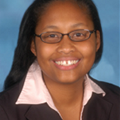 Natalie Guerrier McKnight, MD Natalie Guerrier McKnight, MD
Associate Professor of Medical Education, University of Virginia School of Medicine
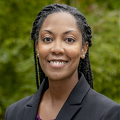 Abena Knight, MD Abena Knight, MD
Clinical Associate Professor of Pediatrics, University of Washington School of Medicine/Seattle Children’s Hospital
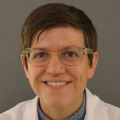 L.E. Faricy, MD L.E. Faricy, MD
Assistant Professor of Pediatrics, Larner College
of Medicine
|
Integrating Planetary Health into Medical Education: A Panel Discussion and Workshop
Friday, November 10, 202312:00-1:00PM; Med Ed 300 (Reardon Classroom) David Rand, DO, MPH
Assistant Professor, Hospital Medicine, Department of Medicine Panelists:
Gaurab Basu MD, MPH, Director of Education and Policy, Center for Climate, Health, and the Global Environment, Harvard T.H. Chang School of Public Health
Megan Malgeri MD, Assistant Professor of Family Medicine, LCOM
Madeline Kline, MD/PhD student, Harvard Medical School
The twin crises of biodiversity loss and climate change pose tremendous, unparalleled threats to human health. Despite their relevance to medical practice, these topics have yet to be well integrated into medical education at any level.
In this grand rounds we will review the current state of planetary health curriculums internationally, nationally, and at LCOM. Participants will then break into small groups and have the opportunity to brainstorm ways to integrate
this topic into their own teaching.
|
Readiness for Residency: Who Should Own This?Friday, December 1, 202312:00-1:00PM; Med Ed 100 (Larner Classroom)  Karen George, MD, MPH Karen George, MD, MPH
Associate Dean for Students, Medical Education; Associate Professor, Department of Obstetrics and Gynecology
This presentation will describe how undergraduate and graduate medical educators within the specialty of Obstetrics and Gynecology have worked collaboratively to create (an) ONRAMP (OBGYN New Residents After Match Program).
|
When the Classroom, Meeting or Training Gets Odd - Classroom DynamicsFriday, February 9, 202412:00-1:00PM; Med Ed 300 (Reardon Classroom) 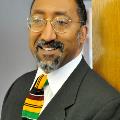 Sherwood Smith, EdD Sherwood Smith, EdD
Senior Executive Director for Diversity, Equity &
Inclusion and Director of the Center for Cultural Pluralism, University of Vermont
This session will suggest proactive measures and constructs for balancing the overall group dynamic challenges related to issues of culture and social justice associated with pedagogy and teaching.
|
Bridging the Transition to Residency with CoachingTuesday, February 20, 202412:00-1:00PM; Med Ed 300 (Reardon Classroom) /teaching-academy-images/new_headshot_(1).tmb-thumb200.jpg?sfvrsn=160ed155_1) Abigail Ford Winkel, MD, MHPE Abigail Ford Winkel, MD, MHPE
Professor and Vice Chair for Education in the Department of OBGYN; Assistant Director of the Institute for Innovations in Medical Education; Assistant Director of the Masters
in Health Professions Education Program and Co-Director of the Transition to Residency Experience at NYU Grossman School of Medicine
A brief review of coaching principles and applications to medical education followed by practice with coaching skills and description of experience using coaching to support learners through the residency transition. |
Self-Determination Theory: Motivating Lifelong LearningFriday, March 8, 202412:00 - 1:00 PM; Med Ed 300 (Reardon Classroom)  Melissa Davidson, MD Melissa Davidson, MD
Associate Dean for Graduate Medical Education, Professor of Anesthesiology
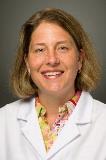 Bridget Marroquin, MD Bridget Marroquin, MD
Associate Professor of Anesthesiology
Self-Determination Theory is a theory of human motivation. As a broad framework that helps us understand why we do what we do, its application in medical education has significant implications for promoting lifelong learning across
the continuum of undergraduate, graduate, and continuing medical education. |
Continuous Quality Improvement in Action: “Quality is not an act, it is a habit.” Friday, April 5, 202412:00 - 1:00 PM; MedEd 300 (Reardon Classroom)
 Lejla Pasic Lejla Pasic
Project Manager – CQI and LCME Accreditation
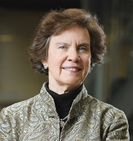 Jan Carney, MD, MPH Jan Carney, MD, MPH
Associate Dean for Public Health and Health Policy
Professor of Medicine, Pulmonary Medicine
Director, Graduate Public Health Programs 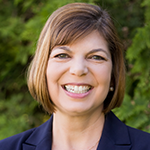 Katie Huggett, PhD Katie Huggett, PhD
Director, The Teaching Academy
Robert Larner, MD ’42 Professor of Medical Education
Assistant Dean for Medical Education Continuous quality improvement (CQI) and medical education share a foundation centered on learning, experiencing, reflecting, thinking, and acting in continuous cycles that spiral to sustained advancement. This session will identify
the role of CQI in medical education and relate the work of the LCOM CQI Committee to teaching and learning. Participants will also work during the session to develop a CQI approach for a hypothetical scenario. |
Frymoyer Scholars Program ShowcaseFriday, May 10, 202412:00-1:00 PM; MedEd 300 (Reardon Classroom) 1. Heather Herrington, MD; Associate Professor of Surgery
“Improved Management of Pediatric Difficult Airways Through Creation of a Collaborative, Interprofessional Workgroup”
2. Naomi Hodde, MD; Assistant Professor of Medicine
“What’s in the Secret Sauce? Investigating and Designing IPE Best Practices for Serious Illness Communication Trainings” Through the Frymoyer Scholars Program, the John W. and Nan P. Frymoyer Fund for Medical Education supports physicians and nurses who are actively engaged in teaching University of Vermont medical and nursing students
who embody the best qualities of the clinician teacher. The program is an investment in outstanding medical education and promotes teaching that emphasizes the art of patient care. This session will showcase a few of the many Frymoyer
Scholars Program recipients and their projects. |
Artificial Intelligence in Medical Education Friday, June 7, 202412:00-1:00PM; Med Ed 300 (Reardon Classroom) 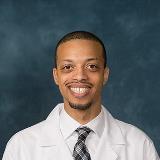 Cornelius James, MD Cornelius James, MD
Clinical Assistant Professor; University of Michigan Medical School
Artificial Intelligence (AI) is transforming the practice of medicine. As AI algorithms become ubiquitous in health care training clinicians to effectively engage with these technologies is essential. During this talk Dr. James will
provide a vision for what AI may look like in medical education curricula, describe curricula integrated at the University of Michigan, and give an overview of the DATA-MD team’s efforts to provide AI-related educational
resources to clinicians and organizations around the world. |